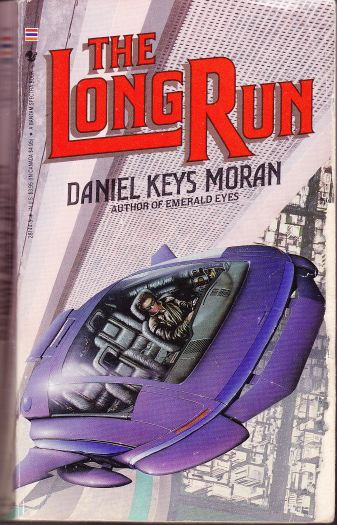I just heard that my younger brother Michael was found dead in his apartment.
This was the brother I was closest to in our young adulthood. From the time I was 26 until I was 30 or so -- while I was in graduate school, in other words, and he was an undergraduate -- every May, as soon as Spring Semester finished, he and I would load up his pickup truck and drive off across the United States, always on a different route, on a five or six week long camping trip.
We trekked through every state in the lower forty-eight, though we liked the mountains best, and Texas least (sorry, Heebie). Once in Northern California, Mike very nearly set the Redwoods on fire, using a five-gallon can of gasoline to start our cookfire in a drizzling rain. (See, when you're dumping gas on a fire, it's a really bad idea to do that with the fire already lit, because the fumes can cause the flames to run right back up into the can, and
then -- )
We camped beside a creek filled with blackberry bushes in Ashland, Oregon. I was still running then, and I picked blackberries, and then went out running while he drank whiskey and smoked his Marlboros. Marlboro Reds in the Box. The next day we went to the Oregon Shakespeare Festival and saw
Titus Adronicus. Who knew Shakespeare's bloodiest play could be so funny?
We camped high in the Little Big Horn Mountains, at a campground so remote it didn't have plumbing, or power, or any other campers. Around dusk, though it was June by then, snow began to fall, giant flakes of it. We sat by our fire and watched it fall, drifting from the dusk, wondering about the tiny narrow road we had taken to get up to the camp, if we could get out again. (We did.)
I was the navigator, and one rule we had was no interstates. I hunted us the most interesting routes I could. "Ooo," I would say, studying the map. "Look at this one. It's a grey road. Let's see what that's like."
"Pavement Ends," he would predict, referring to a sign we often saw. "That's what it's like."
But in the field, he was bolder than I was. "I don't know about this," I would say, as the pavement ended, and the road grew dicier and dicier. "Maybe we should turn around."
"It's a road," he would say. "It's got to go somewhere." And shift into third gear.
(My best story about this is the time he said this and the road ended in a corn field, and the farmer on the tractor giving us a perplexed look. Not all roads do go somewhere, y'all. Just saying.)
Another rule we had was no fast-food; no chain foods. We ate local restaurants and diners whenever we could, or out of farmers' markets and stands. This could be as dicey as having the pavement end, but it was always interesting.
We body-surfed in the Northern Pacific together, which was really too cold for such behavior, and stopped one hot day in the Cascade Mountains to do something really dangerous: a clear green river was roaring along beside the highway, deep and lucid and lovely. We knew better than to swim in a river with a current that strong, but the day was hot and the water was so perfect. And we were in our mid-twenties. Who thinks you're going to ever die at twenty-seven?
I'll never forget how beautiful that water felt. How powerful and clear and strong.
When I went to work on my Ph.D. and he joined the military, our worlds began to change. After 9/11, the world changed us even further. Once I loved him more than I thought it was possible to love a brother. When he died, I had not spoken to him in over two years.
How can a road go nowhere?
And yet it does.





